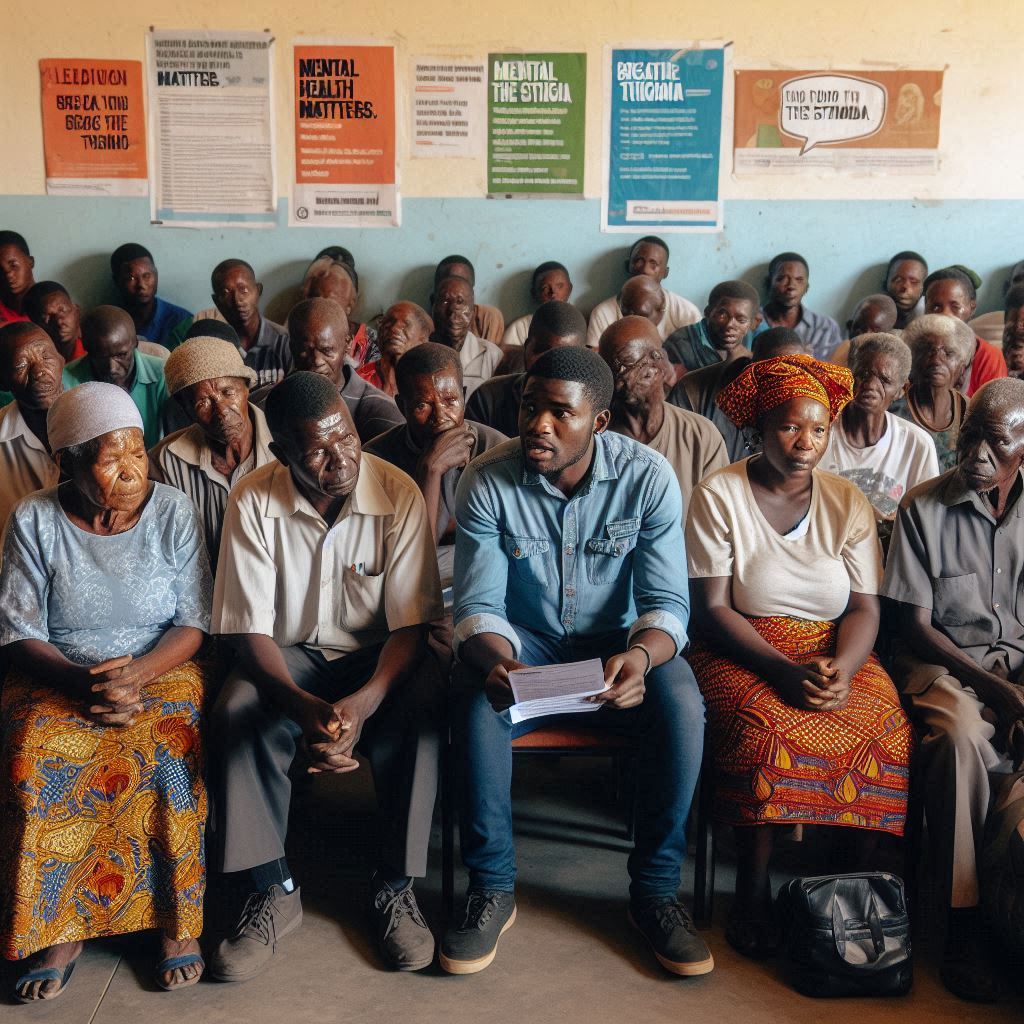Understanding Mental Health Stigma
Mental health stigma involves negative attitudes, beliefs, and behaviors towards individuals who experience mental health issues. It often leads to discrimination, social exclusion, and a reluctance to seek help. In Zambia, as in many parts of the world, this stigma can significantly impact individuals’ willingness to seek and receive appropriate care.
Key Points Zambians Need to Know:
- Mental Health is a Legitimate Health Concern: Mental health issues are as real and significant as physical health problems. They require proper attention, treatment, and compassion.
- Common Myths and Facts:
- Myth: Mental health issues are a sign of weakness.
- Fact: Mental health problems are medical conditions that can affect anyone, regardless of strength or character.
- Myth: People with mental health issues are dangerous.
- Fact: Most people with mental health conditions are not violent and pose no danger to others.
- Myth: Mental health problems cannot be treated.
- Fact: Many mental health conditions are treatable with therapy, medication, and support.

- The Importance of Seeking Help: Encouraging individuals to seek help early can lead to better outcomes. Access to mental health services, counseling, and support groups is crucial.
- Support for Caregivers: Those caring for individuals with mental health issues also need support and resources to manage their own well-being and provide effective care.
- Promoting Compassion and Understanding: Educating the public to view mental health issues with empathy and understanding rather than judgment.
Strategies to Spread Awareness:
- Community Engagement and Education:
- Workshops and Seminars: Conduct workshops in schools, workplaces, and community centers to educate people about mental health.
- Religious and Cultural Leaders: Engage religious and cultural leaders to promote mental health awareness in their communities.
- Media Campaigns:
- Radio and Television: Use popular media channels to broadcast informative programs about mental health.
- Social Media: Leverage platforms like Facebook, Twitter, and WhatsApp to share stories, facts, and support resources.
- Collaborations with NGOs and Health Organizations:
- Partner with local and international NGOs to create and distribute educational materials.
- Collaborate with health organizations to improve access to mental health services.
- School Programs:
- Implement mental health education in school curriculums to teach children about mental health from a young age.
- Train teachers to recognize signs of mental health issues and provide initial support.
- Support Groups and Hotlines:
- Establish support groups where individuals can share experiences and provide mutual support.
- Create and publicize hotlines for immediate mental health support and crisis intervention.
- Government Policies and Funding:
- Advocate for policies that support mental health initiatives and provide funding for mental health services.
- Ensure mental health is included in national health agendas and public health campaigns.
By understanding these key points and utilizing these strategies, Zambia can move towards a more inclusive and supportive approach to mental health. Reducing stigma and promoting awareness will help ensure that individuals with mental health issues receive the care and respect they deserve.
Further Reading and Resources
- Mental Health and Stigma: How to Overcome It
- World Health Organization – Mental Health
- Mental Health Foundation
These resources offer more detailed information and practical advice on tackling mental health stigma and promoting awareness.


